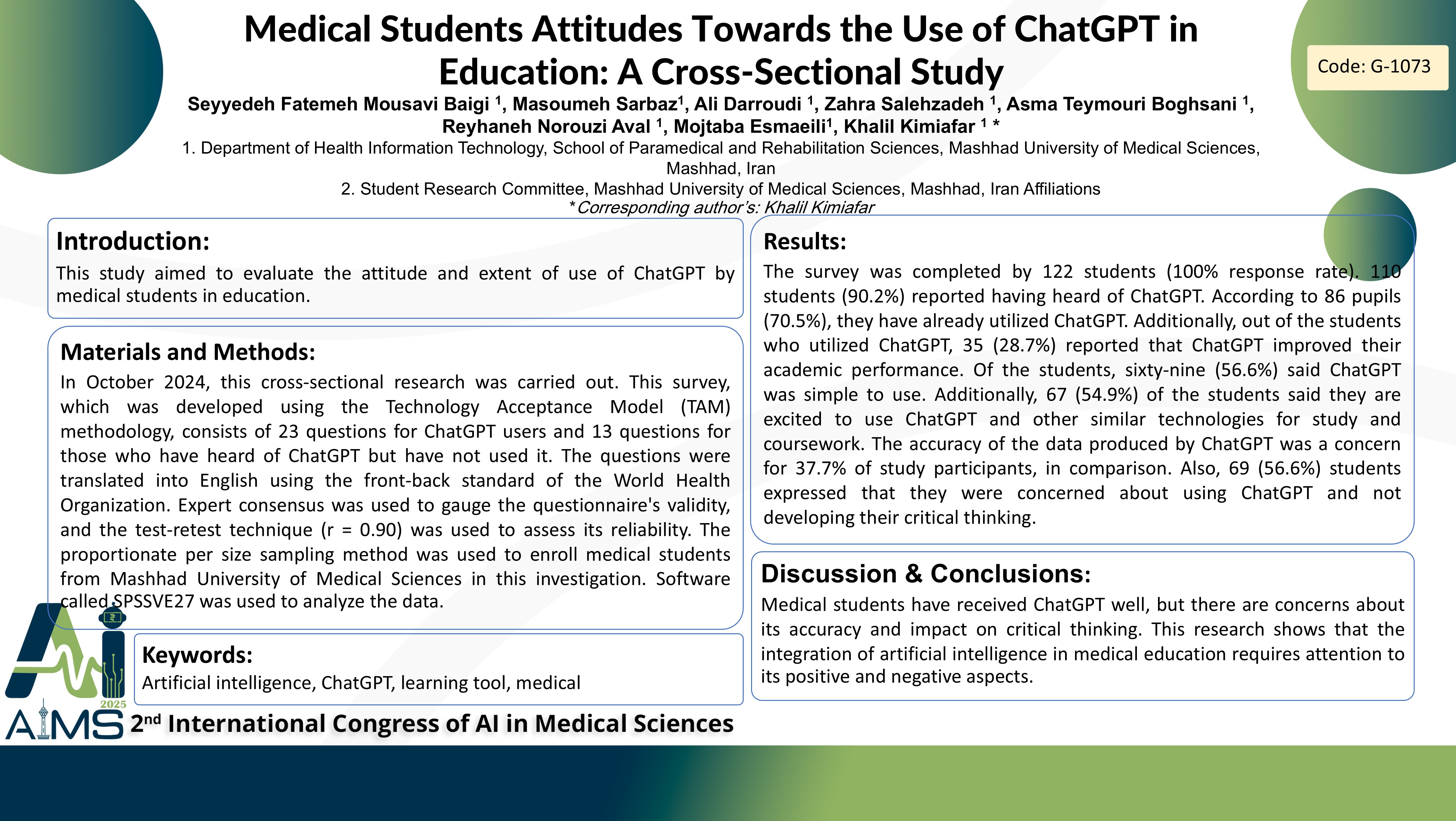بررسی نگرش دانشجویان پزشکی به استفاده از ChatGPT در آموزش: یک مطالعه مقطعی
کد: G-1073
نویسندگان: Seyyedeh Fatemeh Mousavi Baigi ℗, Masoumeh Sarbaz, Ali Darroudi, Zahra Salehzadeh, Asma Teymouri Boghsani, Reyhaneh Norouzi Aval, Mojtaba Esmaeili, Khalil Kimiafar *
زمان بندی: زمان بندی نشده!
برچسب: دستیار مجازی هوشمند
دانلود: دانلود پوستر
خلاصه مقاله:
خلاصه مقاله
Background: This study aimed to evaluate the attitude and extent of use of ChatGPT by medical students in education. Methods: In October 2024, this cross-sectional research was carried out. This survey, which was developed using the Technology Acceptance Model (TAM) methodology, consists of 23 questions for ChatGPT users and 13 questions for those who have heard of ChatGPT but have not used it. The questions were translated into English using the front-back standard of the World Health Organization. Expert consensus was used to gauge the questionnaire's validity, and the test-retest technique (r = 0.90) was used to assess its reliability. The proportionate per size sampling method was used to enroll medical students from Mashhad University of Medical Sciences in this investigation. Software called SPSSVE27 was used to analyze the data. This study has been approved by the ethics committee of Mashhad University of Medical Sciences. Results: The survey was completed by 122 students (100% response rate). 110 students (90.2%) reported having heard of ChatGPT. According to 86 pupils (70.5%), they have already utilized ChatGPT. Additionally, out of the students who utilized ChatGPT, 35 (28.7%) reported that ChatGPT improved their academic performance. Of the students, sixty-nine (56.6%) said ChatGPT was simple to use. Additionally, 67 (54.9%) of the students said they are excited to use ChatGPT and other similar technologies for study and coursework. The accuracy of the data produced by ChatGPT was a concern for 37.7% of study participants, in comparison. Also, 69 (56.6%) students expressed that they were concerned about using ChatGPT and not developing their critical thinking. Conclusion: Medical students have received ChatGPT well, but there are concerns about its accuracy and impact on critical thinking. This research shows that the integration of artificial intelligence in medical education requires attention to its positive and negative aspects.
کلمات کلیدی
Artificial Intelligence, ChatGPT, Learning Tool, Medical
